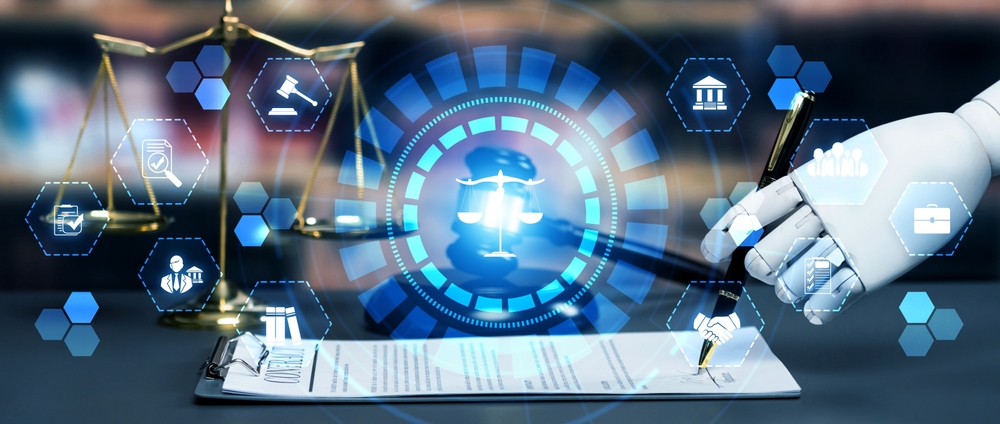The recently approved legislation is winning experts’ support who consider the extensive guidelines will result in the EU being the de facto international standard for trustworthy artificial intelligence.
On March 13, the European Parliament ratified a landmark regulation to regulate artificial intelligence (AI). The Artificial Intelligence Act is considered the globe’s most all-inclusive artificial intelligence guidelines and will be enforced this year. A statement by the European Parliament revealed that the AI Act aims to safeguard vital rights and ensure environmental sustainability from high-risk artificial intelligence. Additionally, it aims to enhance innovation.
EU Parliament Delivers Binding Regulation for AI
In the announcement, Brando Benifei, an Italian legislator who co-led the legislative body’s work on legislation, noted that they ultimately have the globe’s initial binding regulation on AI to develop opportunities, minimize risks, counter discrimination, and promote transparency.
The EU Parliament has ensured that undesirable artificial intelligence practices will be barred in Europe, and citizens’ and employees’ rights will be safeguarded.
The law prevents some artificial intelligence apps that could endanger citizen rights, for instance, untargeted scraping of facial images to make facial recognition databases, emotional recognition in learning institutions and workplaces, and classification systems founded on sensitive biometric attributes.
Based on the new guidelines, manipulated or artificial content, also referred to as ‘deepfakes,’ should be vividly labelled. Artificial intelligence tools that influence human behaviour or leverage technical susceptibilities are also banned. Additionally, the utilization of biometric identification systems by law enforcers is also prevented, with slight exclusions.
High-risk artificial intelligence systems are those utilized in critical infrastructure, law enforcement, education, migration, employment, democratic processes, and crucial services. The systems also encounter the most strict requirements since they should maintain use logs, evaluate and minimize risks, be accurate and transparent, and promote human oversight. The Artificial Intelligence Act codifies citizens’ rights to present applications and gets clarifications concerning verdicts founded on the systems.
EU Connects AI to Values Central to Present Societies
According to Dragos Tudorache, a Romanian legislator who also co-led work on this bill, the European Union (EU) has delivered. He noted they have connected the artificial intelligence idea to the central values that establish the basis of current societies. He also noted that artificial intelligence would compel people to reconsider the social contract at the core of their democracies, labour markets, education frameworks, and the manner in which warfare is conducted.
The law also creates transparency necessities for general-purpose artificial intelligence systems as well as the frameworks on which they are founded. This includes adherence to European Union copyright law and printing comprehensive summaries concerning training content.
Other robust general-purpose artificial intelligence models that might have systemic risks are subject to more requirements. Nevertheless, the utilization of artificial intelligence is not entirely discouraged.
In this case, the law also develops governing sandboxes as well as real-world testing at the national level to back innovation and enhance accessibility to small and medium-sized organizations.
EU AI Act to Improve Region’s Competitiveness
According to legislators, the AI Act is a direct response to citizens’ proposals through the Conference on the Future of Europe, especially those linked to improving the competitiveness of the European Union in strategic sectors. Besides, the group considered trust and safety, enhancing digital innovation with human oversight, and enhancing data access. While the European Union Parliament has ratified the law, final steps are still needed prior to it becoming law. This entails an ultimate legal evaluation and ratification by the European Council. Its implementation is anticipated within some months despite various provisions taking effect over time as well as in stages.
Currently, organizations are seeking to comprehend and conform to the legislation. According to Kirsten Rulf, a partner at Boston Consulting Group, they intend to know the means of scaling the technology. He also noted that enterprises require and desire legal assuredness.
EU AI Legislation Setting International Standard
The United States has implemented some executive action, and other nations are creating their artificial intelligence guidelines. However, the European Union’s strategy places it at the front of international efforts to tackle the risks linked to artificial intelligence.
Enza Iannopollo, principal analyst at Forrester, revealed that adopting the AI Act is the start of a new age, and its significance cannot be overemphasized. The European Union AI Act is the globe’s initial and only collection of binding requirements to reduce artificial intelligence risks.
Enza stressed that the EU will become the de facto international trustworthy AI standard. This will make other regions, including the United Kingdom, ‘play catch-up.’ In the meantime, legislators claim that AI is just the initial step.
According to Dragos, this law is not the end of the journey. Instead it is the early point for new governance developed around technology.
